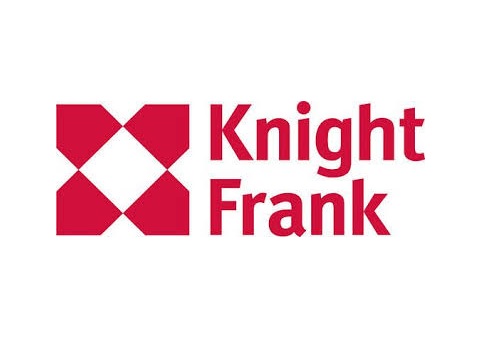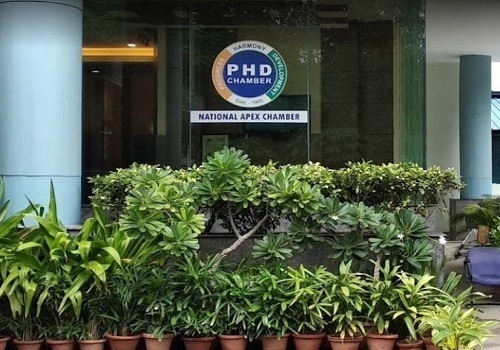Global companies to reinvent the office for life beyond the pandemic : Knight Frank India

Follow us Now on Telegram ! Get daily 10 - 12 important updates on Business, Finance and Investment. Join our Telegram Channel
April 28, 2021, MUMBAI: International businesses are looking to their workplaces to revitalise corporate brand and culture after the pandemic, which will see significantly improved amenities and services available for employees, according to the latest research from Knight Frank.
Knight Frank’s second edition of its (Y)OUR SPACE report draws on responses from almost 400 international businesses with a combined headcount in excess of 10 million, providing a unique insight into the workplace strategies and real estate needs of global companies.
Despite over a year of restricted access to offices, businesses continue to identify their workplaces as an essential component of their corporate identity and vital for retaining and reinvigorating employees post-pandemic. 90% of global occupiers surveyed by Knight Frank said that real estate is a strategic device for their business. 49% of firms named ‘corporate brand and image’ as the top strategic priority fulfilled by their real estate, while offices are also increasingly seen as a tool for improving employee wellbeing, collaboration, and talent attraction and retention, with each of these categories referenced by 37% of firms.
Amongst Indian occupiers and ‘corporate brand and image’ remained a prime strategic objective that is best supported by a real estate asset. Though ‘talent attraction & retention’ found a close second to the corporate brand and image, what is peculiar is the citation of ‘operational transformation & restructuring’ as the third most preferred strategic category. This can be best described as a result of changing needs of business operability influenced by the ongoing pandemic.

Around 67% of the Indian respondents opined that COVID-19 will influence the medium term (next 3 years) direction of the real estate strategy. Though 3/4th of the Indian respondents cited that real estate cost reduction targets have increased since the onset of the pandemic, 71% of the Indian respondents expect to see an increase in their real estate portfolio in the next three years.
Providing a global context, William Beardmore-Gray, Global Head of Occupier Services and Commercial Agency at Knight Frank, comments: “There is a mood of change in the air. Global firms are looking beyond the pandemic and are focused on how their workplaces can enhance corporate culture and re-engage employees in a new age of agile working. We are seeing a re-familiarisation with the office beginning in many big cities around the world. Firms want to give employees the best of both worlds, allowing them to work flexibly, but making their offices the best possible experience, which means delivering higher quality and more engaging workplaces.”
William Beardmore-Gray added: “Half of all firms are already planning to reconfigure their real estate portfolios and remodel their workplaces over the next three years to ensure they are providing employees, colleagues and potential new talent with the best spaces to work, learn and thrive. Businesses will gravitate towards offices that offer a more dynamic workplace environment and experience, utilise technology and reduce environmental impact.”
Net zero carbon emissions targets expected to influence real estate choices
Globally, 77% of the survey respondents who have a publicly stated net zero carbon target have a target date set before 2030. Echoing similar thoughts, 50% of the Indian respondents stated net zero carbon emissions target with majority of them citing the year 2030 as the targeted year.
Around 96% of the respondents believed that their organisations’ commitment to becoming net-zero carbon would change the real estate choices. Around 78% stated to have sustainability considerations as a key influence in determining real estate strategy and portfolio over the next 3 years.

Providing an outlook from Indian perspective, Mr. Shishir Baijal, Chairman & MD, Knight Frank India, said “The sentiment amongst the office occupiers is strong as a majority of them expect their portfolio to increase in the coming years. While the ongoing pandemic has cast a shadow of doubt and uncertainty, the roll-out of vaccine programmes globally has brought hope for the future of the real estate sector. There is a clear rise in demand for sustainable real estate plans as firms have set net-zero emission target dates. Moving forward, there will be an expected rise in the healthcare programmes being offered by firms to their workforce that aims at the overall wellbeing of the workforce and promote the office as a sanctuary to productive collaboration as well as the rise in demand for ecological and sustainable offices that contribute to a firm target to net-zero emissions.”
Increased engagements with the landlord
Indian occupiers’ biggest frustrations with their landlords are a lack of flexibility (38%) and a lack of innovation in product or service offering (25%), highlighting the need for landlords to invest in operations, property management and tenant services. Encouragingly, 42% of Indian respondents and 60% globally said to have seen an increase or significant increase in communication with their landlord over the course of the pandemic, providing an opportunity for landlords and tenants to develop a more collaborative and partnershiporientated relationship for the long-term.
More rigorous cleaning regimes in the building, use of contactless entry systems and temperature scanning of building occupants were described as the top three expectations from the landlord to make the workplace safer going forward.

To Read Complete Report & Disclaimer Click Here
Above views are of the author and not of the website kindly read disclaimer












 320-x-100_uti_gold.jpg" alt="Advertisement">
320-x-100_uti_gold.jpg" alt="Advertisement">











